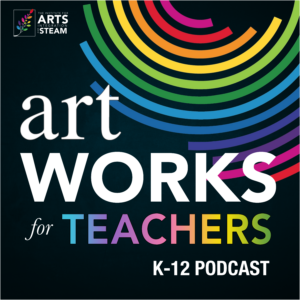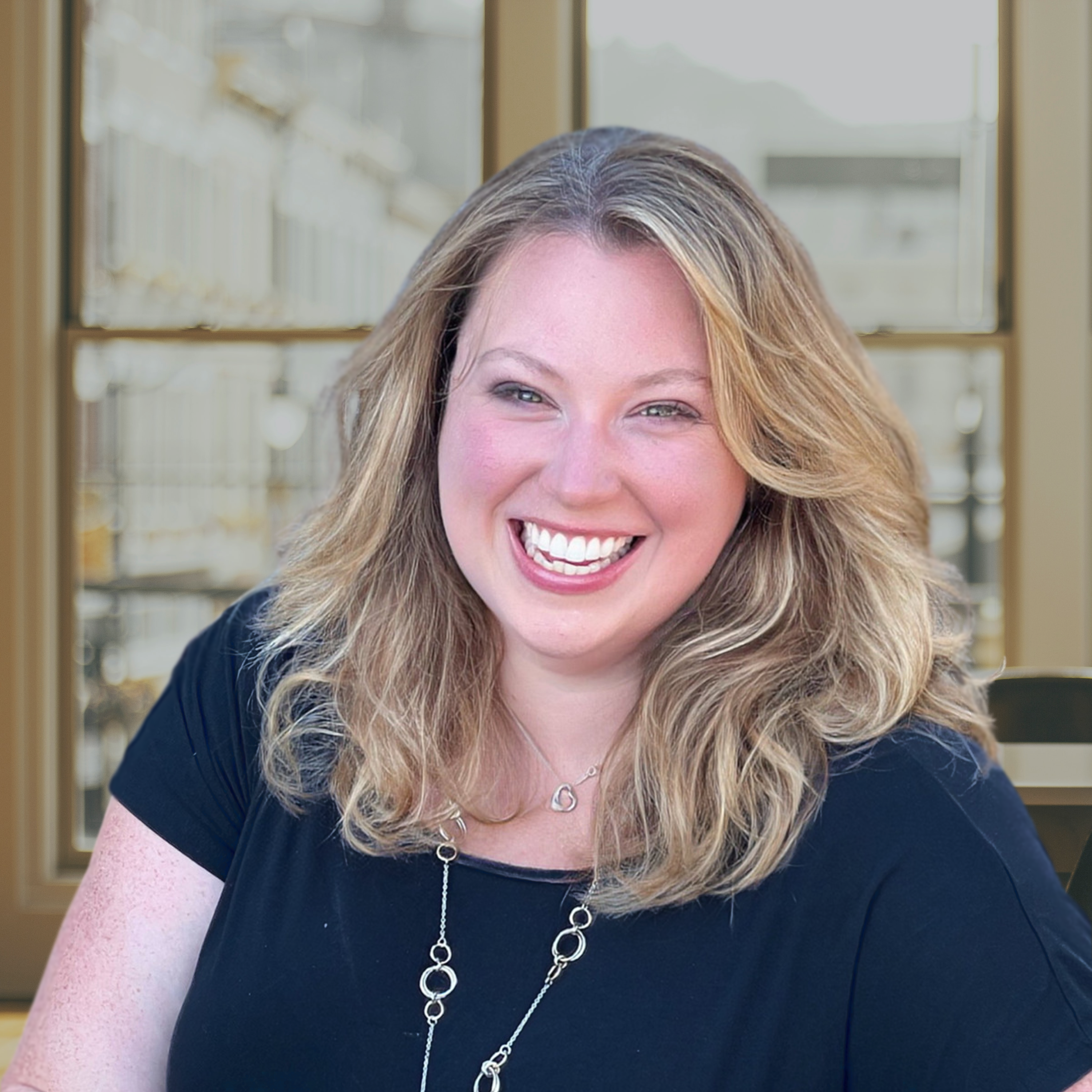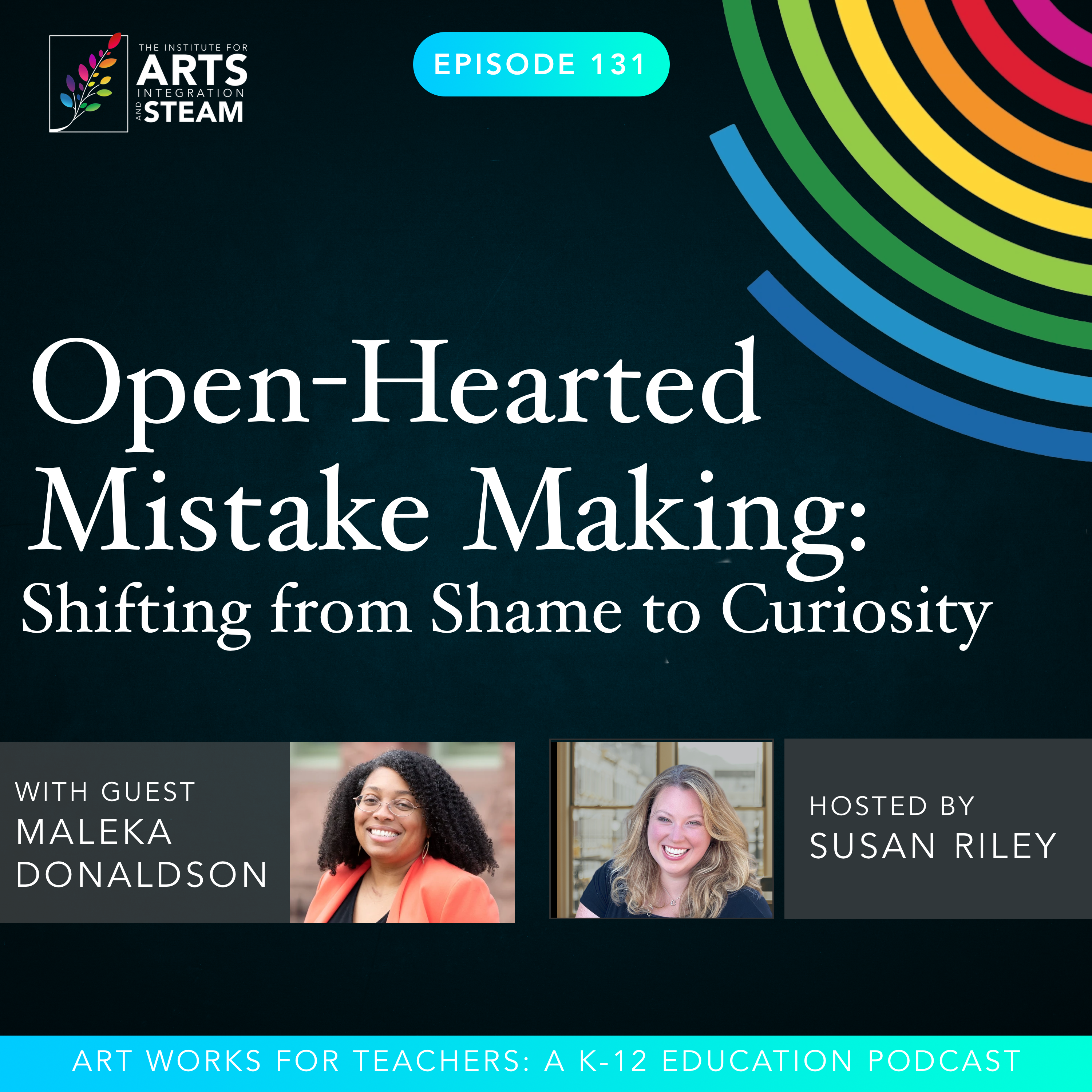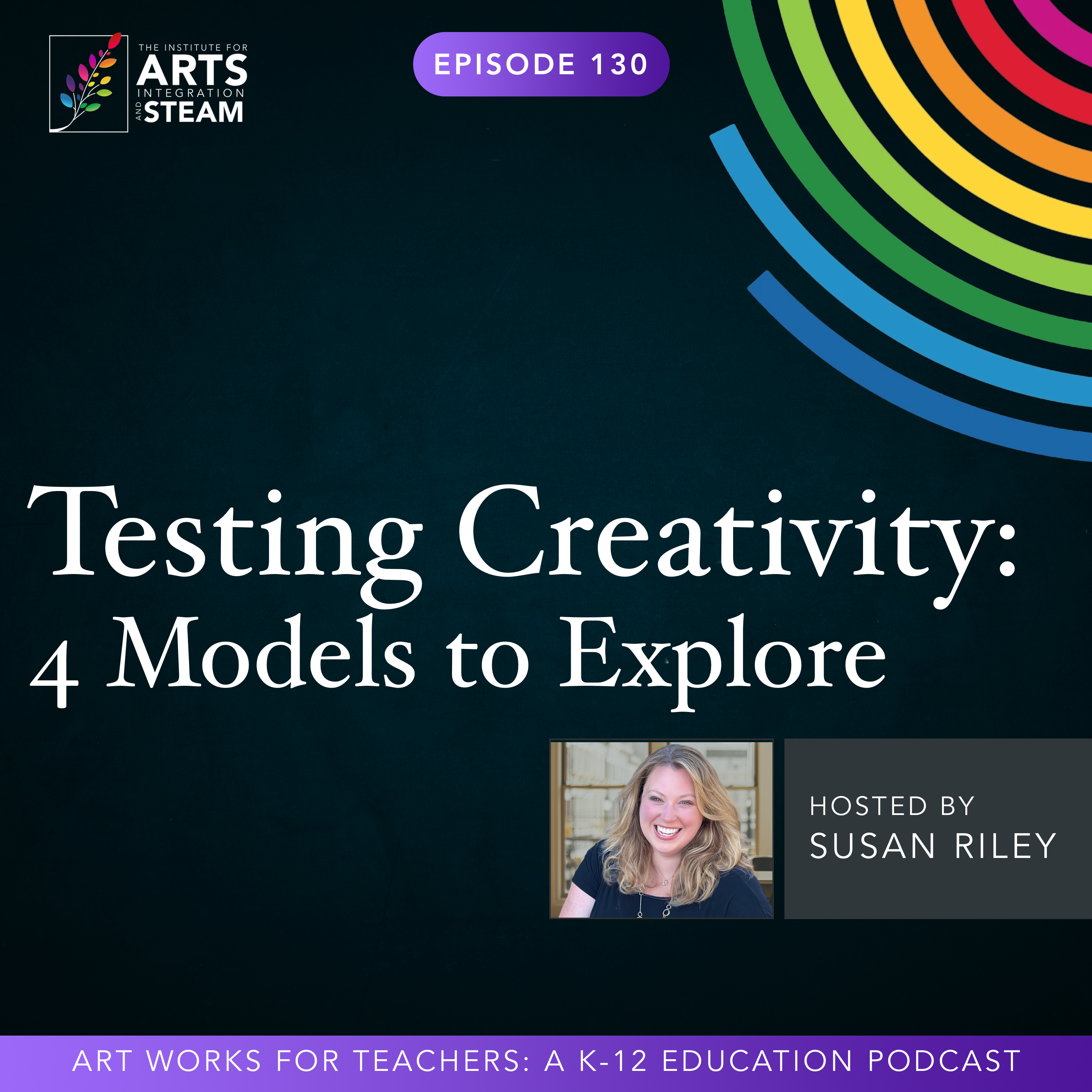ART WORKS FOR TEACHERS PODCAST | EPISODE 075 | 22:31 MIN
Tearing Down the Walls: Why One Size Doesn’t Fit All in Education (Part II)
In part two of our interview with the Godmother of Differentiation, Carol Tomlinson, she tackles the common misconceptions surrounding differentiation in education and how teachers can tear down walls to help build better lives for their learners.
Enjoy this free download of Carol Tomlinson’s books and PD recommendations.
What are some common misconceptions around differentiated instruction that you wish would just like die? Because I know that I’ve got some around arts integration and I know you’ve got to have some for differentiation.
Carol
How long do we have? Yes, there are in this number, but the interesting thing is they repeat across the country, across the world. It’s human stuff. It’s not really about differentiation. It’s human stuff. But I tabled your question a few minutes ago about how to say when teachers say this takes too long. Differentiation is… a life changer for kids. It’s a life changer for teachers. It’s a way of teaching. I don’t know that I’ve ever met anybody, I’m sure they’re out there somewhere, but I don’t know that I’ve ever met anybody who invested in differentiation that said this is a mistake. They begin to see what’s happening in the trust that builds up in them. It’s not that you don’t have problems in the classroom, but they’re a very different kind of thing happening in there, more human ways to solve them than there were before or address them anyway. So for me, here’s my answer. If you want to be the best parent you can be, you don’t come home from the hospital with that little thing in the blanket and put them to bed the first night and say, well, I’m a parent now, got it. You thought you may have learned something the first day, but by the second day it is not worth squat and you’re still doing that when the kid’s 10 or 11.
And when they hit adolescence, you’re pretty sure you’ve never learned a thing. And they go away to college and you think they’ve grown up, they don’t need me, and they’re the hottest mess they’ve been yet. And then they have children and need you again in a totally different kind of way. The commitment to parenting is a step by step, one day at a time. Commitment to do the best that you can do, the best that we know how to do with kids, and that isn’t the same thing for any two kids exactly. And so if you have more than one of those little critters, you know, you’re learning that way all the time. So, and so if you want to be a really good artist, you don’t say, you know, I think I might have a little talent, I think I’ll take one lesson.
I didn’t feel too good about what I was doing in there. I can’t do that. Can’t do no time. Or I’d love to be a really good cook or a really good singer or a really good golfer. But there’s no way I can do any of that in my life. I have to just be a martyr and decide I can’t do anything, you know, but what it is I’m doing that I’m not loving too much right now. So to me, teaching should be hard. Teaching should be hard. Medicine should be hard. Those are two life -changing professions and if they’re not hard, something’s wrong. So the other thing that’s interesting to me though is every year we get these little guys that show up at the door and we say, we don’t say because we know they’ve run away. Okay, you’re in here for algebra. I’m going to teach it to you and if you don’t know it tomorrow, might as well go home.
We say to them all semester, all year, yes, it’s hard. You can do hard things. Let’s figure it out together. Let’s keep looking for ways together to make this work. And we hope that by scaffolding that and encouraging them and making the support systems of presence in their lives, that they get to the end of the year and say, I really didn’t think I could do this, but you showed me I could.
I don’t know why we say this is too hard or it takes too much time. I had a good friend who used to work with me some and had an analogy that I thought was great. She said if you really want to lose weight in case you had noticed this is the truth, they don’t tell you to eat all the food that you normally would have eaten for dinner and then eat the diet food. You replace something with something better. So if you have 30 minutes tonight that you can plan on something, don’t go back to the old way, the same 30 minutes working on something better for tomorrow. And that’s kind of an interesting way I think about it too, but when people say teach, it’s too hard.
I’m sorry, teaching’s supposed to be hard. If we went into it and thinking it wasn’t going to be, if it was going to be a lark, I think we opened the wrong door there. But step by step, one step at a time, talking with our good colleagues who are the best in the building at helping us be better, I watched us do that. I met with my colleagues for probably 18 of the 20 years, multiple times a week sometimes, but really almost weekly for 20 years, at least when people from other schools began to join us.
Susan
Absolutely.
Carol
We knew we were better. I mean, there wasn’t any doubt about that, but not a single one of us said we’re there yet, and not a single one of us said, it’s hard, so let’s quit. It was that fascination of watching good things happen and feeling them inside ourselves, too. So that’s one, it’s too hard. Another one that I’d love to get rid of is, this is the one I think I just almost can’t stay in the room with. I was in Texas many moons ago as the standardized test thing was starting in…
Teachers already were so focused in on that, and it was almost like a game you had to win to survive, a survivor game. And at a break one time, I noticed four teachers talking really animatedly, and I could tell it had something to do with school. So I went over and I said, you guys seem really into what you’re talking about. Can you tell me what your topic is here? And one of them said, well, yeah, we just figured out what to do to make the standardized test results the best we can be.
If we have kids in our class who are doing well, those kids are the definitelies. They’re definitely going to do okay on the test. Anyhow, there’s no point in doing anything else with them. They’re going to be fine without us. We’ve got some no hopes. They’re so far behind. There’s really no hope for them. So we might as well leave those alone because their scores aren’t going to come up enough to really help us. So we’re going to work with the maybes and see if we can get enough of the maybes to move ahead, that I really thought I was going to have to leave that place before I did something really violent. But I think we tend to look at kids through those mirrors. These kids are not going to be successful. They just can’t be. I mean, look where they came from. Look how much language they don’t have. Look at the neighborhood they’re in. Look at the attitude they bring. And then we look at bright kids and say, he doesn’t need us. He’s fine. He’s already ahead. They don’t need us for anything.
We then look at, we then give less work to the kids that we perceive are in trouble. And we teach down to them. And we say the kids at the top don’t need us and we leave them alone. And then we look at the kids and say, oh, these others, they’re just average. They’re not going to do any better. They’re doing okay. They’re making C’s or B’s occasionally. That’s they’re just average. And that habit that we have again is back to the mindset thing and not really starting, stopping to think, this kid’s seven.
What can change in his life if he is lifted to do amazing things? Can I do with this 13 year old who truly is a pill to help her see the world better so she treats the world better? And so that notion of, I’ve seen this online even where somebody will say, and I think they’re earnest with it, differentiation’s not so hard. All you have to do is plan one lesson, dumb it down for a few kids and give the other kids some extra problems and you’re done seen that many times. That one sends me out of the stratosphere. Another one that I think is really interesting is, it was one other thing I had written down when you sent me your questions, is that differentiation is a set of strategies. This is kind of funny, interesting, not funny, not interesting in working with. And when I say teachers, I mean me too, because I’ve done everything. But you work with folks and for me, I feel the need to help build some sense of what we’re trying to accomplish here, what the philosophy is, where we could go.
And I understand where teachers are coming from, but so often it’s, don’t tell us any background, we don’t need that. Just tell us two or three new strategies and we’ll go differentiate. And it’s kind of like, you know, give me a, just give me a tool set and I’ll go build a house. If you don’t know anything about architecture, if you don’t know anything about physics or tools, maybe not, maybe the house won’t be great. And what I have come to understand over the years is, well, strategy, I mean, we have to have things we can use in a class.
But they’re less important than almost anything else in attending to kids’ needs. I mean, there’s so many more things that we could do than trying to find yet again another strategy, which frequently does cause us some more work. That’s fine too. I mean, sometimes you have to do that and you can make it better by co -planning with peers and, you know, you do the first X and I’ll do the second X and we’ll, you know, we’ll figure that out together, keep things and make them better the next year but not restart. But just that sense that differentiation is a set of strategies or just show me what it looks like. We had an institute that we did sometimes multiple times a year at the University of Virginia for about 20 years. And when you’re in the summer, a teacher always meaning well. People are there to learn. They didn’t have to come far and sit through days of stuff. But she said, I just don’t see how you can do what you’re talking about in a world language class.
And I said, and I had just finished showing a world language example, but I said if the example I just showed you didn’t quite make it clear, let me see if I can find an example that deals with specifically the moment in teaching that you’re talking about, you know, prepositions or past tense or something.
So I went home and scrounged around and asked some friends and I did find something that had been differentiated by some teachers who were teaching language. And so I brought that back the next day feeling really, really great. And it was in front of the whole group. So I shared it with them and talked a little bit about it and asked her if what I was doing was making sense or if she had other questions. She said, no, she thought it made sense. It helped. But she came back after the session and she said,
That was in Spanish 2. Show me one in Spanish 1. And of course what I know then is I’m not communicating well or I’m trying to meet the need for a strategy when we haven’t laid the foundation for it, you know. But yeah, but so I think that it’s about a set of strategies and we’d be helpful if that one went away along with a couple hundred others.
Susan
And you know, again, what’s surprising to me and maybe not is that is the parallels because we literally just finished an online event called Winterfest this past weekend where we shared some of these strategies for arts integration and as well as laying the groundwork of here’s what this looks like in practice. It’s what we’re trying to get you to do in at each stage and feedback very similar. Like, I liked this example, but I didn’t quite see how it fit in this in geometry rather than an algebra class. Well, so it’s very, very similar struggles, which I think is interesting that different approaches to working with students, different reasons for using those approaches. But when working with educators, it’s funny how similar the the barriers and the misconceptions can be. And so I think that that might be something to play with for another day, but to think about why is that, why is it that we can find those things across approaches that are similar. So, but like I said, probably to save that for another day, I just thought that was interesting. Before we close out though, yeah, absolutely.
Carol
But let me pop in one thing there if you’re okay with it, because I think I did finally have some insight about that. One writer said the only people who like change is a wet baby, and I think that’s true too. And when people start suggesting that we change, it’s sort of like, you mean you think I’m not good enough? I thought I was good enough, and then we get worried about is too much work or what are my colleagues gonna say if I try this and they don’t want to and all that kind of stuff. So I think all of what I call the yes buts, I could do it, but there’s this problem, but there’s this problem, is human. But we had, in the institutes we were doing, we frequently had people who would come for several summers, usually a leader would bring a slightly different group of teachers back, but sometimes a core group would come back several times and a couple of times, leaders said to us or just folks that were coming with the group, you know we can tell this year that we’ve really made progress because those yes but questions that everybody else is asking our teachers have stopped asking them. And so what that means is they’ve gotten past that to seeing something that’s more real to being able to lose some of the threat.
to seeing things that are more positive than just the negatives, the yes -buts are universal. And they happen to almost all of us until we can get a little further down the road, I think.
Susan
Thank you for that, because that does, that answers that question quite a bit. And it reminds me of the concerns -based adoption model. We use this a bit when we talk about change with teachers and leaders. And it’s that first portion where it’s concerning around the first bucket is about how does it affect me? And that’s what that reminds me of is that until you can get beyond how does this affect me, you can’t change anything else about your practice. Right.
Before we go, because I know we’ve been at this for a while, but I’m so grateful because I’m just learning so much from you today. We talk about the difference between purpose and passion a lot on this show and kind of thinking about what those two things mean in terms of our careers. And I’m just curious, particularly since this has been such an insightful interview already, if you could describe your career’s purpose thus far and your passion, how would you describe those two things?
Carol
Well, my purpose, of course, has morphed a little bit over time because for many years my purpose was what can I do to make this a better place for these kids tomorrow. My purpose now, I think, is to…help teachers think along with me, to help school leaders think along with me, to help parents think along with me, and when I can, to help kids think along with me about what it would make to dream a world and create it. Not some crazy world, you know, that can only happen in science fiction, but to envision a world where human beings can live together and get the most out of themselves and each other. And so I think that’s it, especially after the fact that I’ve taught for so long in public school where the focus every day was the kids, then to have that second layer of what do we really know about this stuff? What do we have enough empirical data or experiential data to say, or personal data to say, this is a good step, this is a good way to go. So I think that sense of in the classroom of having kids think along with me and watching their thinking and learning from it and in our profession trying to help other people think along too. But that’s sort of the purpose. My passion really is learning and teaching and what those do to really almost as metaphors for transforming lives. I mean, what do we do to build a better life at our house, in the swim center that we belong to, the world that we are in, and the idea of dignifying the people in those places and the things we do together. And I’m just a curriculum geeked coo. I’m sorry, curriculum and instruction are just fascinating to me. The pieces fit together and the creativity that’s in them, or potential creativity that’s there, and the endless number of ways you can accomplish the same thing and the walls you can tear down to make it freeing for a lot of people. I’m just a curriculum geek at heart and so I guess that’s it.
Susan
I’m right there with you. That’s awesome. So where can people find you and learn more about all of the work that you’ve done so far?
Carol
Well, if anybody is really interested in X, which used to be Twitter, right now I’m a little antsy there, but my Twitter handle is at C -A -T -3 -Y, which is a strange one, but at C -A -T -3 -Y.
Facebook, I just sort of do geeky kind of personal things there. I haven’t ever used that very much for professional purposes. And if you look me up on Amazon, you’ll find lots of different books that are there. And some that are on differentiation has been authored by colleagues or my former students, which are really wonderful. If anybody is really interested, if they’ll contact you, I’ll be glad to give you a list of some books and other materials on differentiation that are the best I know how to do and the best that some other people know how to do. And I’d be glad to share that or hit Amazon or come to at C -A -T -3 -Y and ask me a question there.
Susan
We’ll put all of that in the show notes and we’ll make sure to have that list as the downloadable for this episode so that people can go grab that. All right, thank you so much for your time today. It has been phenomenal for me. I’m so excited for everybody else to hear this and I really appreciate it.
Carol
Sure, great, we can do that. And what I want to do now is come join your stuff so I can learn from that perspective. That sounds like a real winner.
Susan
Amazing. Thank you.
Carol
Thanks to both of you, you and Jaime.
Carol’s books on Amazon


